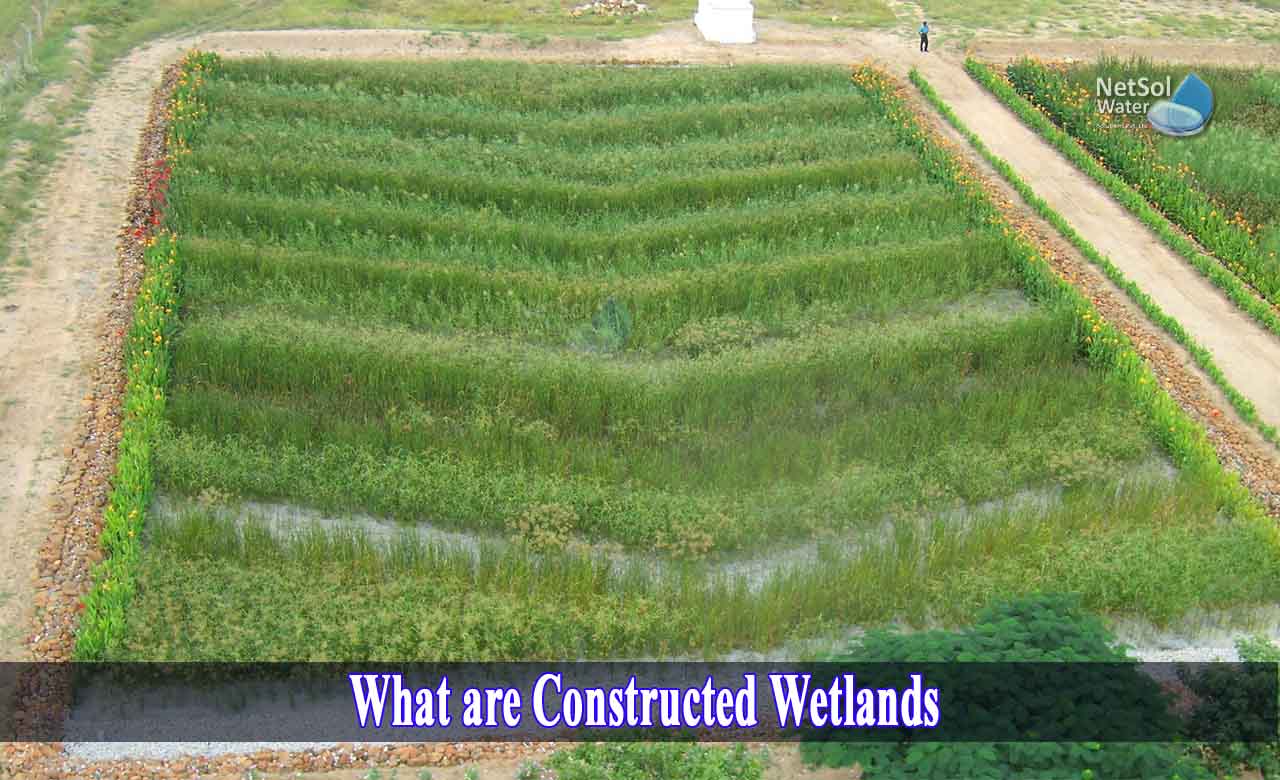Introduction
Pharmaceuticals are among the emerging organic contaminants (EOCs) that are discharged to water resources and the environment from a variety of sources, including domestic wastewater (excretion), effluent discharge from wastewater treatment plants (WWTPs), industrial waste streams from hospitals, landfill leachate, and animal excretion. As a result, no matter how much of the total wastewater generated is treated before release into the environment, pharmaceutical contamination may be viewed as a global hazard for practically every country. The continual discharge of pharmaceuticals from numerous sources, including WWTPs, might render these 'pseudo-persistent' organic chemicals a potential source of risk, particularly when present in high quantities, as well as the combination of a diverse range of compounds that may function synergistically.
What are constructed wetlands?
A constructed wetland (CW) is a man-made wetland that is used to treat sewage, greywater, stormwater runoff or industrial wastewater. It may also be intended for land reclamation following mining or as a step toward compensating for natural areas lost to land development. These are constructed systems that leverage the natural activities of plants, soil, and creatures to treat wastewater effluent. The artificial wetland's design must be altered based on the type of wastewater to be treated. When there is a high concentration of suspended particles or soluble organic matter, this is the first treatment that is recommended (measured as BOD and COD).
How do constructed wetlands work?
Constructed wetlands, like natural wetlands, operate as a bio-filter and may remove a variety of contaminants from the wastewater (such as organic matter, nutrients, pathogens, and heavy metals). Wetlands are built to filter water contaminants such as suspended particles, organic matter, and nutrients (nitrogen and phosphorus). A created wetland is supposed to eliminate all pathogens (including bacteria, viruses, protozoans, and helminths). Subsurface wetlands remove more pathogens than surface wetlands.
Constructed wetlands are classified into two types
· Subsurface Flow
· Surface Flow
The planted vegetation is essential for pollutant clearance. The filter bed, which is typically made of sand and gravel, plays an equally significant function. Although it is not their primary function, some built wetlands may provide habitat for native and migratory wildlife. Subsurface flow-created wetlands are built with either horizontal or vertical water flow through the gravel and sand base. Vertical flow systems require less area than horizontal flow systems.
Can theseeliminate pharmaceuticals or personal care products?
With a rising number of pharmaceutical and personal care product (PPCP), flowing past traditional wastewater treatment facilities and entering the environment, it's worth investigating how engineered wetlands for polishing treated wastewater affect these residuals.
Constructed wetlands (CWs) are low-cost, nature-based wastewater treatment methods that have been widely researched for the removal of traditional pollutant criteria such as organic matter and nutrients, as well as pharmaceuticals.The removal efficiencies of PPCP with the use of wetlands are shown to be highly associated with conventional effluent characteristics such as BOD/COD, TSS, and Ammonia.
The following are the removal rates:
• Anti-inflammatories range from 11 to 100 %
• Beta Blockers (37–99%)
• Diuretics range from 18 to 95%
Netsol Water is a world-class water management company that provides complete water treatment, industrial wastewater treatment, sewage treatment, desalination, and Zero Liquid Discharge (ZLD) solutions. We have a track record of producing and treating difficult-to-treat wastewater at a cheap cost. Our expertise is in bringing together our teams to ensure seamless project implementation. We include cutting-edge technologies, reduce our carbon footprint, save energy, and provide a cutting-edge water treatment system.
Netsol Water is Greater Noida-based leading water & wastewater treatment plant manufacturer. We are industry's most demanding company based on client review and work quality. We are known as best commercial RO plant manufacturers, industrial RO plant manufacturer, sewage treatment plant manufacturer, Water Softener Plant Manufacturers and effluent treatment plant manufacturers. Apart from this 24x7 customer support is our USP. Call on +91-9650608473, or write us at enquiry@netsolwater.com for any support, inquiry or product-purchase related query.



